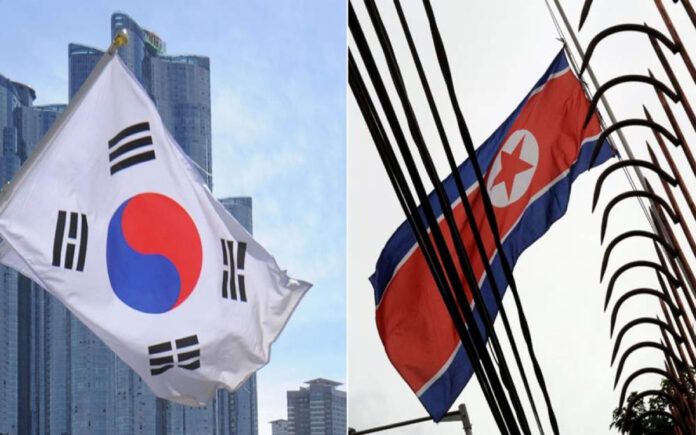Pyongyang: North Korea has accused South Korea of deploying drones over Pyongyang to drop anti-North Korean propaganda leaflets, threatening military retaliation if such actions continue. South Korea has firmly denied these allegations.
In a statement issued Friday, North Korea’s Foreign Ministry claimed that South Korean drones were detected flying over Pyongyang on October 3, as well as on Wednesday and Thursday of this week. The ministry condemned these alleged flights, describing them as a violation of North Korea’s “sacred” sovereignty and a serious threat to its national security.
Labeling the drone incursions as a “dangerous provocation,” North Korea warned that the situation could escalate into armed conflict or even war. The ministry added that North Korean forces would prepare “all means of attack” aimed at South Korea’s southern border and military installations, promising to respond swiftly and without warning if South Korean drones are detected again.
North Korea Warns South Korea, Calling Drone Incursion Unacceptable
“The safety lock on our trigger has now been released,” North Korea’s Foreign Ministry declared. “We will be prepared for everything and will be watching. The criminals should no longer gamble with the lives of their citizens.”
When questioned about North Korea’s accusations during a parliamentary hearing, South Korean Defense Minister Kim Yong-hyun responded, “We have not done that.” He explained that South Korea was still assessing the situation but refrained from providing further details. It remains unclear whether Kim was referring only to military drones or potentially including those operated by South Korean civilians.
North Korea, under the leadership of Kim Jong Un, is notoriously sensitive to external criticism, particularly targeting its authoritarian regime. In retaliation to South Korean activists launching balloons carrying anti-North Korean propaganda across the border, North Korea has, since May, launched thousands of balloons filled with waste materials, according to an Associated Press report.
Also Read | Enhanced Security: Kenya to Send Additional 600 Police Officers to Haiti
In response, South Korea’s military has used loudspeakers along the border to broadcast anti-regime propaganda and K-pop music into North Korea, heightening tensions already aggravated by North Korean weapons tests and nuclear threats. In reaction to Kim’s escalations, South Korea and the United States have increased their military exercises and reinforced trilateral security cooperation with Japan, as well as their nuclear deterrence strategies.
North Korea Announces Permanent Border Closure
This week, North Korea escalated its confrontational stance, announcing plans to permanently seal its border with South Korea and build additional front-line defense structures to counter what it termed the “confrontational hysteria” of South Korean and U.S. forces. State media reported that North Korea’s military will “completely cut off roads and railways” connected to South Korea and strengthen defenses in those regions. The North described these measures as self-defensive actions intended to prevent conflict and ensure national security. It specifically blamed South Korea’s military exercises, U.S. strategic deployments, and hostile rhetoric from its adversaries for escalating tensions.
Analysts believe that Kim Jong Un’s persistent push for nuclear capabilities is an attempt to gain recognition as a legitimate nuclear power, which could enable North Korea to negotiate more favorable security and economic deals with the United States.
Also Read | Turkey and Serbia Consider Joint Production of Military Drones
In recent written statements to the Associated Press, South Korean President Yoon Suk Yeol expressed concerns that North Korea may carry out a significant provocation, such as a nuclear test or missile launch, around the time of the U.S. presidential election in November to draw Washington’s attention.
President Yoon also condemned North Korea’s balloon campaign, warning that if these activities endanger South Korean lives, North Korea will face “consequences that it will find difficult to withstand,” although he did not elaborate on potential retaliatory actions.



